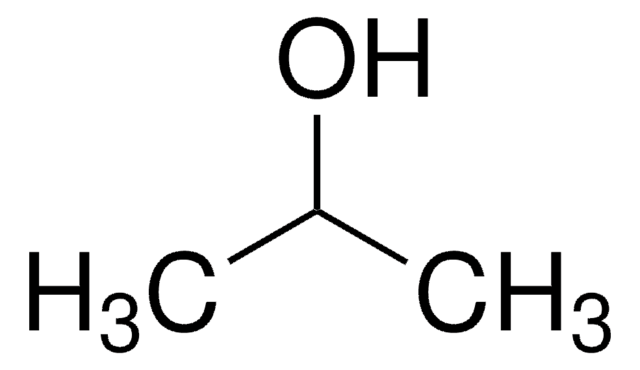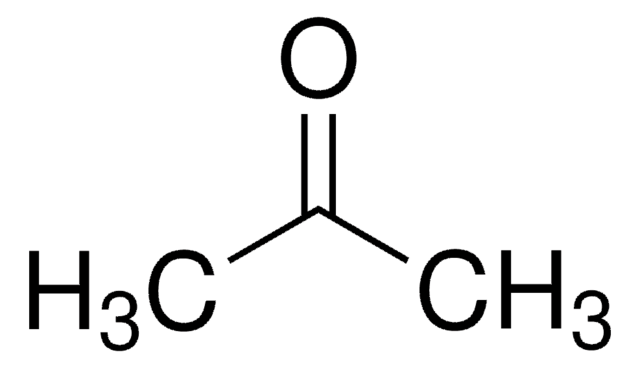109827
2-Propanol
≥99.5%, Laboratory Reagent grade
Synonym(s):
sec-Propyl alcohol, IPA, Isopropanol, Isopropyl alcohol
About This Item
product name
2-Propanol, Laboratory Reagent, ≥99.5%
grade
Laboratory Reagent
Quality Level
vapor density
2.1 (vs air)
vapor pressure
33 mmHg ( 20 °C)
44 mmHg ( 25 °C)
assay
≥99.5%
form
liquid
autoignition temp.
750 °F
expl. lim.
2.0-12.7 %, 93 °C
impurities
≤0.2% water
evapn. residue
≤0.003%
refractive index
n20/D 1.377 (lit.)
pH
7.0 (20 °C)
bp
82 °C (lit.)
mp
−89.5 °C (lit.)
solubility
water: soluble
density
0.785 g/mL at 25 °C (lit.)
SMILES string
CC(C)O
InChI
1S/C3H8O/c1-3(2)4/h3-4H,1-2H3
InChI key
KFZMGEQAYNKOFK-UHFFFAOYSA-N
Looking for similar products? Visit Product Comparison Guide
Related Categories
General description
Application
greener alternative product
signalword
Danger
hcodes
Hazard Classifications
Eye Irrit. 2 - Flam. Liq. 2 - STOT SE 3
target_organs
Central nervous system
Storage Class
3 - Flammable liquids
wgk_germany
WGK 1
flash_point_f
53.6 °F - closed cup
flash_point_c
12.0 °C - closed cup
Certificates of Analysis (COA)
Search for Certificates of Analysis (COA) by entering the products Lot/Batch Number. Lot and Batch Numbers can be found on a product’s label following the words ‘Lot’ or ‘Batch’.
Already Own This Product?
Find documentation for the products that you have recently purchased in the Document Library.
Customers Also Viewed
Our team of scientists has experience in all areas of research including Life Science, Material Science, Chemical Synthesis, Chromatography, Analytical and many others.
Contact Technical Service


